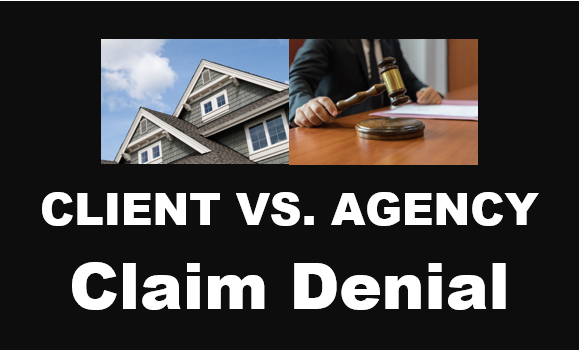
An Illinois agency left a wealthy married couple’s property uninsured. It came back to bite them.
Ironically, the agency got their business because they were unhappy with their previous agency. They had been insured with the same carrier since 1992. In 2018 the carrier canceled their policies after their agent mismanaged the premium payments. They switched to another of the carrier’s agents who obtained new homeowners policies, an auto policy and an umbrella.

In the fall of 2018 they asked the agent to get a homeowners policy in the name of a limited liability company (LLC) that they had formed to own a home. This started the following chain of events:
- November 28: The agency principal emails the husband that the carrier had approved issuing the policy. He asks when coverage should be bound. The husband answers “immediately.” The agent emails back to confirm that the policy will be issued.
- December 4: The carrier informs the agent that they are declining to issue the policy. For reasons unstated in the appellate court’s opinion, the agent does not inform the insureds.
- January 29, 2019: A burst water pipe in the home causes more than $150,000 damage. The insureds notify the agent who informs them that the loss might not be covered. The husband reports the loss to the carrier. The carrier opens a file and assigns a claim number.
- February 1: The agent emails the husband a list of homes and autos insured by the carrier. The water-damaged home is not on the list. He recommends that the insureds seek coverage for that home from another carrier while their carrier “is sorting through things since no coverage is in place at this time.” He also states that the carrier is “looking into the matter” of the loss and promises an update when he receives more information.
- Feb. 3: The husband emails the agent, referencing a phone conversation in which the agent allegedly promised to cover the loss himself if the carrier did not. The agent responds that the carrier is still investigating the loss and has not made a final determination.
- Feb. 4: The husband emails the agent and requests assurance that the agent will cover the loss if necessary.
- Feb. 9: The agent’s attorney emails the husband, asks for a repair estimate, and advises that the agent is working with the carrier to see what they might be willing to cover. The husband replies that the agent is breaking his promise to personally cover the repair costs.
- Feb. 12: The attorney emails the husband, disputing that the agent ever agreed to pay for the loss. She again requests a repair estimate for the agent to submit to the carrier. In response, the husband calls the agent a liar and says that he had never informed them of a coverage problem.
- March 2: The attorney emails the husband, thanks him for providing the repair estimate, and promises to have it sent to the carrier. He responds by asking the agent to confirm that he will keep his promise.
- March 4: The carrier issues a letter denying coverage because no policy was in force on the date of the loss.
- March 11: The insureds receive the letter.
On March 8, 2021, one year and 362 days after receiving the letter, the insureds sued the agency and the carrier. The trial court ruled that the insureds filed suit after the two-year statute of limitations ended. However, in February 2023 the appellate court ruled that the insureds delayed filing suit because the agent repeatedly told them that the carrier was investigating the claim. Accordingly, there was a dispute as to when the two-year period started. The judges returned the case for trial. It seems likely that the agency’s errors and omissions liability insurance carrier will settle the case.
Most states hold that an insurance agent has a legal obligation to obtain the requested coverage or to timely inform the insureds of the inability to do so. This agent seems to have neglected that second part. He should have informed his client on December 4, the day he received the carrier’s declination, that they needed a plan B. A different market could have been located that week, well before the date the pipe burst. Instead, he gave his clients another example of an agency that mishandled their insurance.












